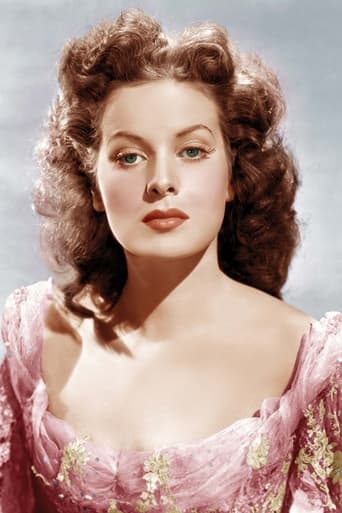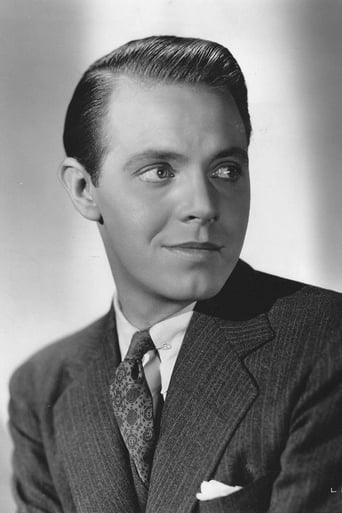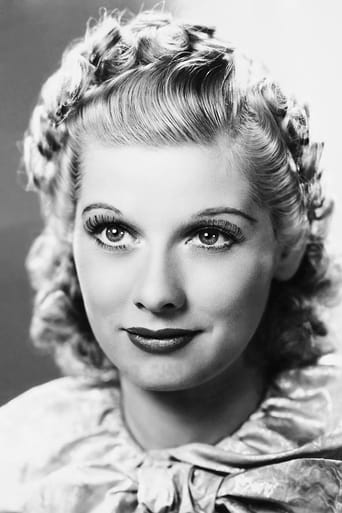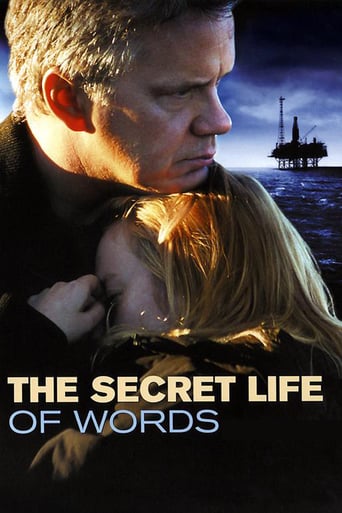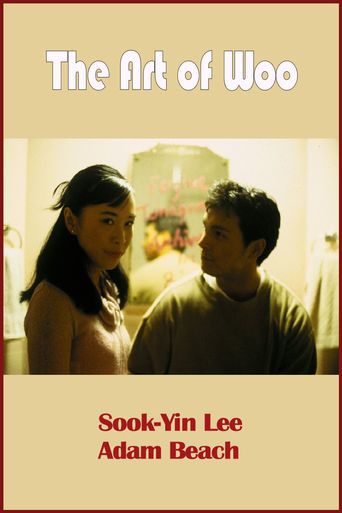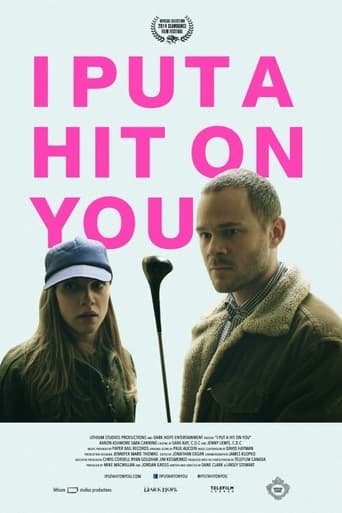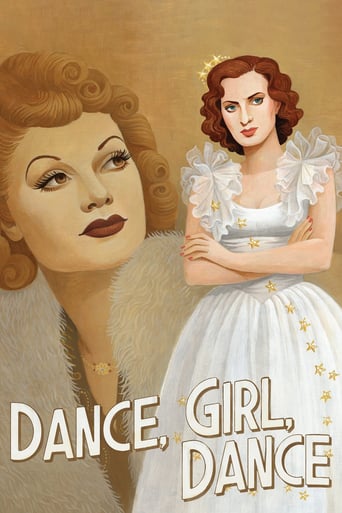

Dance, Girl, Dance (1940)
Judy O'Brien is an aspiring ballerina in a dance troupe. Also in the company is Bubbles, a brash mantrap who leaves the struggling troupe for a career in burlesque. When the company disbands, Bubbles gives Judy a thankless job as her stooge. The two eventually clash when both fall for the same man.
Watch Trailer
Cast
Similar titles

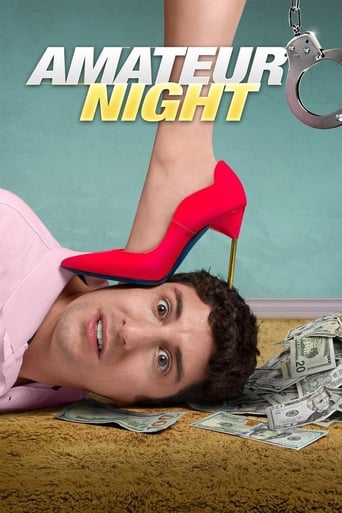
Reviews
the audience applauded
This movie was so-so. It had it's moments, but wasn't the greatest.
Good films always raise compelling questions, whether the format is fiction or documentary fact.
A great movie, one of the best of this year. There was a bit of confusion at one point in the plot, but nothing serious.
Having just watched "The Big Street", released by RKO 2 years after this 1940 film, I couldn't help noticing that both films were dramas including the marital designs of a superaggressive, heartless, gold digging prima dona theatrical singer or burlesque queen, played by Lucille Ball. The main difference in the plots of the two films is that, in the present film, Lucy, representing low class dancing talent, is scripted as a bad girl to Maureen's good girl image, representing high brow dancing, especially ballet. In "The Big Street, Lucy's character is the only main female character, becoming permanently crippled early in the film. In a sense, she is both good and bad, mainly the latter, usually acting arrogantly or complaining to everyone. Yet, she is worthy of some sympathy, as a successful Broadway night spot entertainer, who is rendered crippled in a spat of jealousy by her gangster boyfriend. In the present film, the two female stars are often friends, but are also jealous of each other because of their different dancing personas, and their competition for matrimony to a rich playboy drunk(Jimmy), who is nice to the girls. There is also a 3rd woman involved: Jimmy's recently divorced ex-wife,played by Virginia Field. She will come into prominence in the confusing final portion of the film.Judy(Maureen) has struck up a friendship with Jimmy, but when Lucy(Bubbles or, later, Tiger Lily) learns that he is rich and divorced, she manages to get a marriage license out of him while he is good and sauced. He doesn't even like her. Judy is jealous and has a cat fight on stage with Tiger Lily, getting the best of her.While this is primarily a drama about the problems of surviving in the commercial world when your primary interest is in serious dance, it does have its comedic moments. Besides the afore mentioned cat fight, Maureen is funny in night court, with her unexpectedly candid answers to the judge's questions relating to the cat fight. Tiger Lily gets Judy a dancing job as her stooge between her own performances. But the raucous patrons only jeer at her conservative dancing style and relatively cool demeanor, whereas they cheer for Tiger Lily's sexy performances. But, at least she is surviving and being paid more than her previous job as a chorus girl in a dive. Judy eventually comes to realize that Jimmy, with his drinking problem, would not make an ideal husband for her. In the end, she realizes that Steve(Ralph Bellamy), whom she just found out apparently is the director of a Broadway theater troupe, is very impressed with her potential, and appears to be a very nice man. He bailed her out of jail, and offers to train her to be a classy Broadway dancer. Clearly, he loves her, but we have no idea whether he is married or interested in her as a wife, despite the parting scene in the film.This film, appropriately, was directed by the only Hollywood female director during Hollywood's "Golden Age": Dorothy Arzuer. This was her next-to-last film. While some interpret it as being pro-women's lib, I can think of various films from that era and the '50s that were much more so.
In some ways, the plot to "Dance, Girl, Dance" is a lot of nonsense. After all, if you are looking for a realistic movie that could happen on this planet, you'd better keep looking. However, if you can accept the film for the campy picture that it is, it is quite enjoyable.The film begins with a dance troop. Their performance is interrupted by a police raid and they appear to be out of work when a nice guy (Louis Hayward) encourages the patrons to pay the girls for that show. He then shows a lot of interest in Judy (Maureen O'Hara), but the super self-absorbed Bubbles (Lucille Ball) steals the guy and goes off on a date with him. Although the date turns out to be a bit of a bust, this is the pattern that would continue throughout the film. In other words, although Judy is a nice person and the most talented dancer, Bubbles would routinely step in and hog all the glory. And, in the world of dancing, Bubbles ego-centrism really helps her make a splash with a new job--doing a dance that is only a step or two better than being a stripper. Later, she gets Judy a job--but only in a very subordinate role which is meant to be laughed at by the audience! There is far, far more to the movie than this.The best way to describe it is to compare it to two movies--one old, one rather new. It reminds me of a Bette Davis/Miriam Hopkins film called "Old Acquaintance". The two are friends but repeatedly, the one 'friend' takes all the glory and treats her friend poorly. This continues throughout the film until finally the put-upon friend has had enough and she realizes that this friendship just isn't worth it--and finally tells her off. The other film is "Showgirls". While I've never seen all of this trashy film, the behind the scenes backstabbing and egos are clearly evident in both films. Overall, "Dance, Girl, Dance" is entertaining and the ending is pretty satisfying. However, don't expect a film that is particularly realistic or that seems even remotely plausible--though both actresses did a nice job in their respective roles.
As one of the industry's few female directors, Dorothy Arzner's participation in this film is, I would guess, the main reason this movie is still known today. One wonders what Arzner could have accomplished if she lived in today's times, free of studio intervention. Arzner was able to direct this when Roy del Ruth had problems with the producer, Erich Pommer, and left.The story is about two dancers - one a burlesque queen (Lucille Ball) and one an aspiring ballerina (Maureen O'Hara) -- commercialism versus art. Bubbles (Ball) goes for the money both in her work and in her search for a man, while Judy (O'Hara) attempts to be independent, even turning down Ralph Bellamy when he wants her to stand under his umbrella in the pouring rain.The lives of these two women intertwine in work and in personal life -- Judy becomes a "stooge," a ballet dancing set-up as the burlesque audience screams for Bubbles; and they both take up with the same man, Jimmy (Louis Hayward) who's rich and conflicted. Judy understands him; Bubbles understands his wallet.The cast is wonderful, with the O'Hara as a gentle, refined woman with the soul of an artist and accompanying sensitivity, and Ball as a classless sex bomb with a flashy personality. Both are gorgeous and play off one another beautifully.The men make less of an impression -- this is, after all, a woman's picture. Louis Hayward as a tortured man going through a divorce somehow disrupts the flow of the film; and Ralph Bellamy is charming but doesn't have much to do.A little slow but very entertaining and well worth seeing. Dorothy Arzner was a remarkable woman who survived in a man's world and made some excellent films, finishing her career as a teacher at UCLA. Her work is definitely worth checking out.
Aspiring dancers try to make it big in New York City. This is a forgettable movie that can't decide if it wants to be a comedy, a drama, or a musical when it grows up. A good cast is wasted. Ball is the main attraction here, energetically singing and shaking her groove thing as a dancer named Bubbles. O'Hara, playing Miss Goody Two-Shoes, isn't given much to do, but handles herself well. Hayward is underwhelming as a ladies' man. Bellamy fares better as a decent fellow who's smitten with O'Hara. Arzner, while historically important as a female director in Hollywood, fails to make this interesting. Despite the cast, it feels like a B movie.
